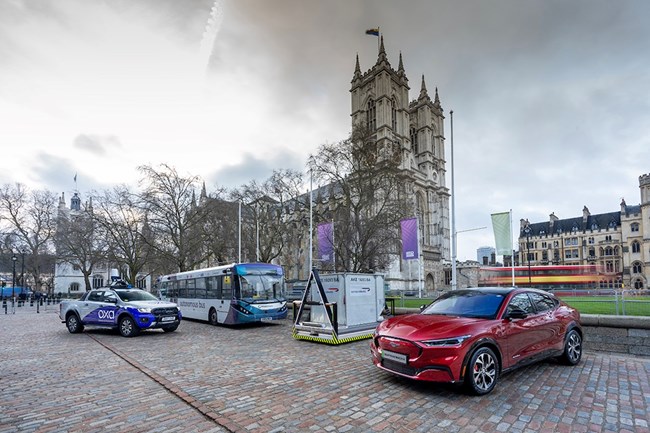We use cookies to ensure that we give you the best experience on our website. If you continue without changing your settings, we will assume that you are happy to receive all cookies on the Business Car website. However, if you would like to, you can change your cookies at any time

The start point for the best source of fleet information |
Motor industry calls for swift automated driving law implementation
Date: 25 March 2024 | Author: Sean Keywood

New legislation covering automated driving needs to be passed into law quickly, according to the Society of Motor Manufacturers and Traders (SMMT).
The industry body said that the Automated Vehicles (AV) Bill currently passing through Parliament had the potential to unlock 'massive safety and economic benefits' from automated cars and public transport services.
The SMMT said that, even if the current timetable for the bill was met, following its second reading in the House of Commons in early March, it was unlikely to lead to automated vehicles on British roads until at least 2026.
However, it warned that should the bill's implementation be delayed until after the next General Election, expected later this year, that date was likely to be nearer to 2030.
The SMMT argued that this would put the UK at a 'significant disadvantage' compared with other markets in the EU and US, which already had regulatory frameworks in place, and would risk the UK 'squandering its advantage' from the government and industry having jointly investing more than £600 million in self-driving vehicle trials since 2015.
According to the SMMT, automated vehicle technology could save 3,200 lives and prevent 53,000 serious accidents by 2040, and provide a £38 billion boost to the UK economy.
The bill is designed to create a safety threshold for self-driving vehicles, ensure that only vehicles which meet rigorous self-driving standards can be marketed as such, and make companies responsible for how their self-driving vehicles behave on the road, protecting users from being held accountable.
Under the bill, every authorised self-driving vehicle will have a corresponding 'authorised self-driving entity' - often the manufacturer - which will be responsible for the behaviour of the vehicle when self-driving. Companies will have ongoing obligations to keep their vehicles safe and ensure that they continue to drive in accordance with the law.
The bill was developed following a review of self-driving vehicle regulation carried out by the Law Commission of England and Wales and the Scottish Law Commission.
Speaking at the SMMT's Connected 2024 event, the organisation's chief executive Mike Hawes said: "Backing the AV Bill now is fundamental if Britain is to not only develop but deploy self-driving passenger cars and services.
"We have the foundations, but other major markets are stealing a march, with regulation already in place allowing them to benefit from UK-developed self-driving tech that cannot be rolled out here.
"Any further delay risks leaving Britain in the slow lane, jeopardising our competitiveness and holding back the significant safety and economic rewards self-driving technology can deliver."
On the subject of public demand for automated vehicles, the SMMT has cited research it commissioned from YouGov, which found that 29% of adults would use an automated bus, shuttle, or taxi service, and 26% were likely to try self-driving features in a personal car.
The top three potential benefits of a self-driving car were thought to be reduced driving stress, improved safety, and potentially lower insurance costs.
The SMMT has also argued that success seen with existing driving assistance systems demonstrates potential for self-driving technology, with autonomous emergency braking technology having led to an 38% reduction in real world rear-end crashes.











